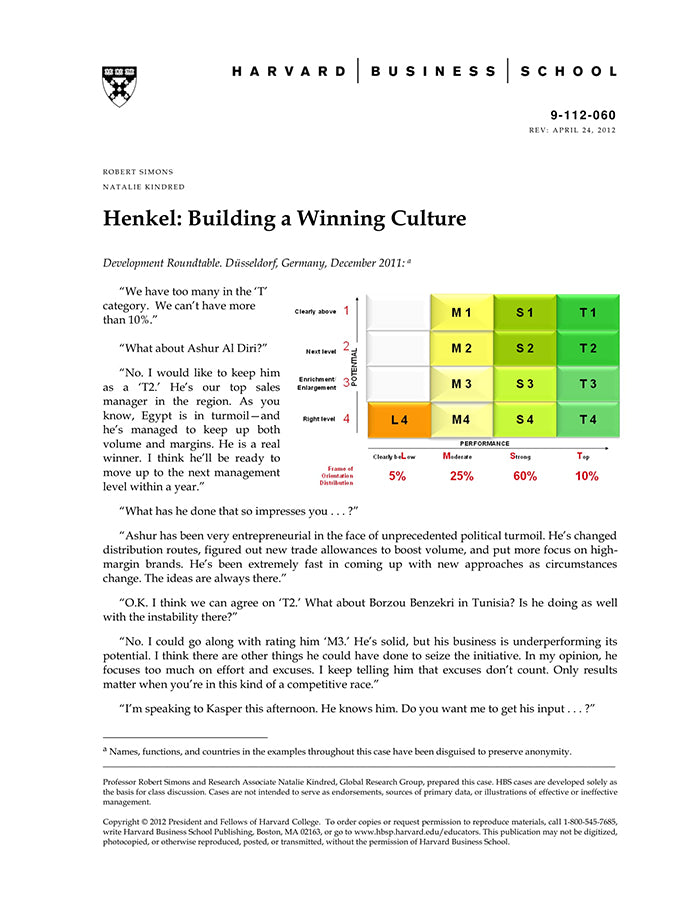Henkel: Building a Winning Culture
受取状況を読み込めませんでした
This case illustrates a CEO-led organizational transformation driven by stretch goals, performance measurement, and accountability. When Kasper Rorsted became CEO of Henkel, a Germany-based producer of personal care, laundry, and adhesives products, in 2008, he was determined to transform a corporate culture of "good enough" into one singularly focused on winning in a competitive marketplace. Historically, Henkel was a comfortable, stable place to work. Many employees never received negative performance feedback. Seeking to overturn a pervasive attitude of complacency, Rorsted implemented a multi-step change initiative aimed at building a "winning culture." First, in November 2008, he announced a set of ambitious financial targets for 2012. As financial turmoil roiled the global economy, he reaffirmed his commitment to these targets, sending a clear signal to Henkel employees and external stakeholders that excuses were no longer acceptable. Rorsted next introduced a new set of five company values-replacing the previous list of 10 values, which few employees could recite by memory-the first of which emphasized a focus on customers. He also instituted a new, simplified performance management system, which rated managers' performance and advancement potential on a four-point scale. The system also included a forced ranking requirement, mandating that a defined percentage of employees (in each business unit and company-wide) be ranked as top, strong, moderate, or low performers. These ratings significantly impacted managers' bonus compensation. In late 2011-the time in which the case takes place-Henkel is well on its way to achieving its 2012 targets. Having shed nearly half its top management team, along with numerous product sites and brands, Henkel appears to be a leaner, more competitive, "winning" organization.
【書誌情報】
ページ数:19ページ
サイズ:A4
商品番号:HBSP-112060
発行日:2012/2/7
登録日:2012/5/29


